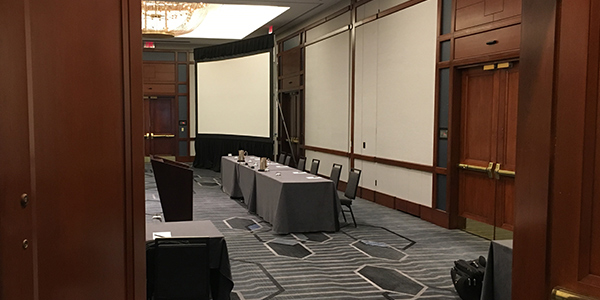New England states called on ISO-NE last week to increase its transparency and the role of states in its decision-making, saying the current structure is incompatible with their clean energy efforts and is raising costs for ratepayers.
The New England States Committee on Electricity (NESCOE) made the demands Friday in an eight-page manifesto titled “New England States’ Vision for a Clean, Affordable and Reliable 21st Century Regional Electric Grid.” It lays out in more detail a critique released two days earlier by the governors of Connecticut, Maine, Massachusetts, Rhode Island and Vermont, who said ISO-NE is frustrating their efforts to reduce economy-wide greenhouse gas emissions. (See related story, New England Governors Call for RTO Reform.)
Although New Hampshire Gov. Christopher Sununu (R) did not participate in Wednesday’s statement, NESCOE said the state did join in the vision document, saying the state shared its neighbors’ “interest in preserving efficient wholesale markets and in ensuring that transmission system planning achieves least-cost solutions.” New Hampshire also wants “to prevent or minimize any rate impact of other states’ policies” on its retail electric rates, NESCOE said.
The vision statement said ISO-NE should convene a “collaborative process” with states and other stakeholders in 2021 to consider changes to its mission statement and governance structure “to achieve greater transparency around decision-making, a needed focus on consumer cost concerns and support for states’ energy and environmental laws.”
It noted that the RTO’s mission statement, contained in its Tariff, “has no explicit relationship to or recognition of the need for consumer cost-consciousness.”
It also criticized the makeup of ISO-NE’s Joint Nominating Committee, which selects the RTO’s board members. The committee comprises seven incumbent board members, six market participants — one from each of NEPOOL’s sectors — and only one shared vote for the six New England states.
“This one-vote-for-six-state governments may have been comfortable in the late 1990s, when regional planning and markets had relatively marginal interaction with the requirements of state laws,” NESCOE said. “Today, it merits a relook.”
The statement includes repeated references to the RTO’s “lack of transparency,” which it says “undermines public confidence” in the organization. Neither ISO-NE board meetings nor NEPOOL stakeholder meetings are open to the public.
States and stakeholders only see “exceptionally high-level summaries of board discussions provided by ISO-NE management. This results in an unacceptable constraint on facilitating independent insight and review by stakeholders about what data, material and other resources the board considers in developing its guidance to management and how it balances divergent interests in their decision-making.”
NESCOE said the states and stakeholders should use the months before 2021 to consider best governance practices of other grid operators, but it added that the states “welcome any immediate actions by ISO-NE to address these or other governance issues that are within its discretion to provide greater transparency and accountability.”
While the boards of PJM and NYISO also meet privately, NEPOOL is the only RTO/ISO stakeholder body in the U.S. whose meetings are not open to the public.
ISO-NE spokesman Matt Kakley said in a statement to RTO Insider that “we have reviewed the NESCOE vision statement and look forward to speaking with the states on these issues.” The RTO had no immediate comment on what changes it has discretion to make or whether it would consider them.
The states and NESCOE will hold a series of online technical conferences this fall that will be open to the public to discuss the vision statement and solicit input. “The states intend to report to their respective governors in the first quarter of 2021 on findings and recommendations for action steps to advance this vision,” NESCOE said.
Market Design, Transmission Planning
NESCOE said the region needs a new “market framework” that meets states’ decarbonization mandates and maintains resource adequacy at the lowest cost using market-based mechanisms. It also must accommodate states’ long-term contracts for clean energy resources, integrate distribution-level resources efficiently and give states “the central role” in designing the market.
On Thursday, FERC: Send Us Your Carbon Pricing Plans.)
The states acknowledged the ongoing discussions around potential market changes, such as the proposed Forward Clean Energy Market (FCEM), which it said “may be one way” to support clean generation resources to meet their carbon-reduction laws.
New England ratepayers have seen escalating transmission charges — rising from $869 million in 2008 to $2.4 billion in 2019 — and will need to fund additional infrastructure to deliver onshore and offshore wind energy to load centers and facilitate distributed energy resources, NESCOE said.
It called for “a comprehensive long-term regional transmission planning process,” saying the RTO “currently does not conduct a routine transmission planning process that helps to inform all stakeholders of the amount and type of transmission infrastructure needed to cost-effectively integrate clean energy resources and DERs.”
It also recommended the RTO develop “multiple future resource scenarios (e.g., three to four) as the basis for assessing future regional transmission needs [using] identified time frames (e.g., 2030, 2040 and 2050).”




